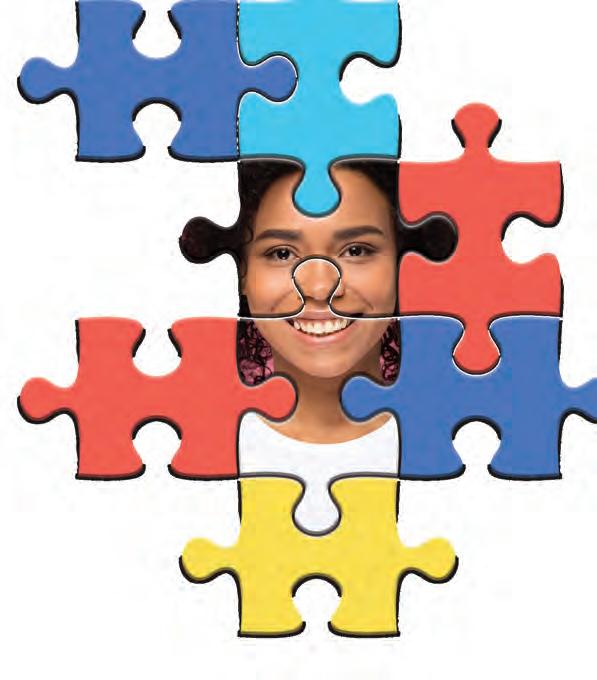Support for
Developmental Disabilities and Mental Health Challenges As mental health challenges escalate, Devereux Advanced Behavioral Health Florida offers hope for youth with autism.
I
n April, we recognize National Autism Awareness Month by wearing pins with a recognizable puzzle pattern and connecting with organizations that support or educate about autism to create further awareness. However, the depth, scope and complexities of intellectual disabilities were actually realized in 1912 by a woman who was a pioneer in the field, Helena Devereux. Today, her namesake nonprofit is one of the largest and most advanced healthcare organizations in the country, connecting the latest scientific and medical advancements to practical, effective interventions in the treatment of behavioral health. Devereux Advanced Behavioral Health Florida was established in 1987 to meet the emotional and behavioral needs of youth in Florida. The nonprofit organization has developed a 30-year history of providing expert care to treat the most severe combination of autism and mental health conditions — known as dual diagnosis — through intensive residential treatment, specialized group homes, foster care and, most recently, the introduction of its Behavioral Support Program.
What is Autism?
Autism spectrum disorder is a developmental disability that can cause significant social, communication and behavioral challenges. While it can be diagnosed at any age, symptoms generally appear in the first few years of life. In 2020, the Centers for Disease Control and Prevention reported that approximately 1 in 54 children in the United States is diagnosed with an autism spectrum disorder, according to 2016 data. More specifically, 1 in 34 boys and 1 in 144 girls are identified with autism. Individuals with autism may communicate, interact, behave and learn differently than most other people. They often have problems with social, emotional and communication skills as well as developing and maintaining relationships. With
26
Central Florida Lifestyle | April 2021
the help of medical professionals, parents can work with their children to set expectations and manage behaviors — though this tends to be more difficult as the child grows older.
The Escalation of Mental Health Issues
During the teenage years, when it is developmentally appropriate for youth to place greater value on peer relationships and feelings of acceptance, issues stemming from autism can lead to feelings of isolation and depression. This is due to the social stigmas caused by differences in the ways autistic individuals communicate and interact, which may lead to additional challenges such as becoming a victim of bullying behavior. For any adolescent, the social and emotional impact of bullying is felt greatly; however, it further exacerbates the already challenging issues faced by those with autism who may then experience changes in their symptoms, behaviors and cooccurring health conditions. Co-occurring mental health conditions, such as anxiety disorders, attention deficit hyperactivity disorder and depression, are common with autism. Some psychiatric conditions could present as well. This is known as dual diagnosis. In addition to bullying, the impact of hormonal changes in adolescence might escalate the situation for individuals with autism. When behaviors that are typically easily managed in the home shift to the child or adolescent becoming a danger to themselves, such as with suicidal thoughts or actions, it becomes a mental health crisis. For these families, access to services that support dual diagnosis is exponentially challenging. With dual diagnosis cases, one issue often disqualifies access to care or available funding despite the need. This is where Devereux’s Behavioral Support Program is a critical resource that provides access to a variety of well-established programs for families who have exhausted their options.
• • • • • • Promotional Feature • • • • • •

















